Training local teams in report card creation
Heath Kelsey ·Report Card Training for WWF Zambia
Lusaka, Zambia February 24-26 2018
The first report card project in Africa was kicked off in Lusaka, with a training workshop hosted by Chanda Kumwenda at WWF. Michele Thieme /(WWF US), Simon Costanzo, and I facilitated a four-day training workshop covering the 5 major steps to creating a report card for the Lower Kafue River. The final day was devoted to science communication. The workshop was attended by staff from WWF Zambia, Zambia University, and the Water Resources Management Authority (WARMA). The major goal of the workshop was to prepare participants to lead the first stakeholder workshop the following week.
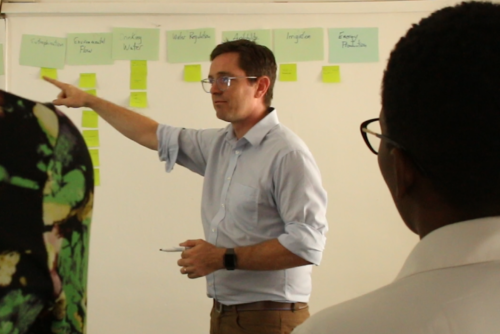
Highlights of the training for me were SNAP, Get the Grade, and the storytelling component of the science communication section. SNAP is an interactive activity that solicits input from participants on the most important factors for measuring ecosystem health. Participants write 1-2 word responses on sticky notes and the moderator categorizes them on the wall. The activity is fun, but can be a challenge to manage, as participants always want to charge in and put up sticky notes on their own. Training for SNAP focuses on how to categorize and summarize the results, and getting everyone to think deeply about the relationship between indicators and categories. It is foundational to the report card process as it defines the initial categories that will be assessed in the report card evaluation.
This time we separated the SNAP activity into the 6 different categories of report card indicators: Water Quality and Quantity, Ecosystems, Management and Governance, Social and Cultural, Economy, and Water and Sanitation. Although it took a bit longer, it forced a deeper investigation of important ecosystem factors for each category by looking through each particular lens. This created more balance in the values selected, and made the process of creating new indicators more efficient.
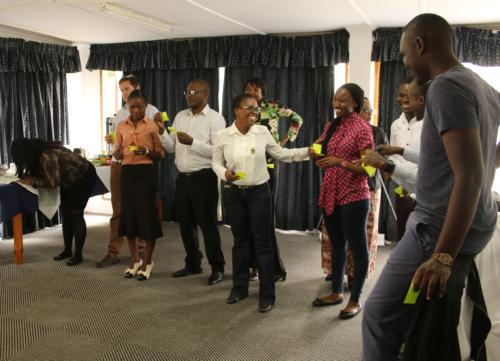
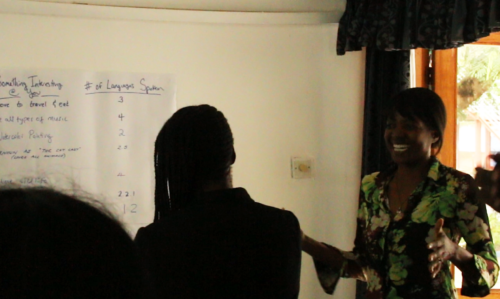
The report card game was also, as always, a big hit with participants. It forces participants to evaluate choices for the ecosystem through the eyes of a character that represents a stakeholder in the river basin. The game is always so fun that participants do not want to stop even when the day is over.
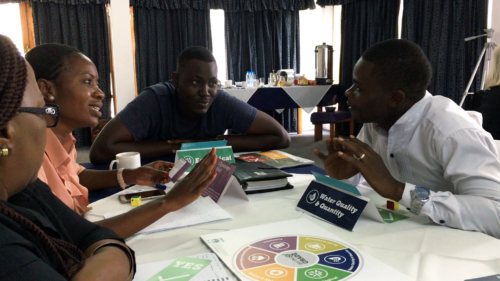
The storytelling component was also fun, because I got to research a few common and important stories from the local culture. One was about Kalulu the hare who is forced into hiding by a lion, but returns to save the lion, and thus the community. Believe it or not, I was able to draw parallels between this story and the Tom Cruise movie Top Gun, by tracing the hero’s journey.
Another story I shared was the legend of Nyami Nyami, the god of the Zambezi River. It is said that, as the Kariba Dam on the Zambezi River was nearing completion, Nyami Nyami created two 1000 year floods within a few years of each other. The reason? he wanted to destroy the dam because it was blocking him from seeing his wife. The first flood killed about 80 workers and destroyed much property.
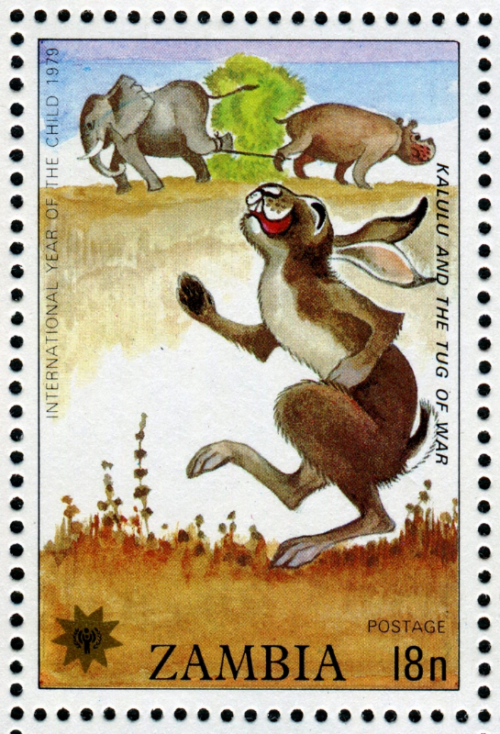
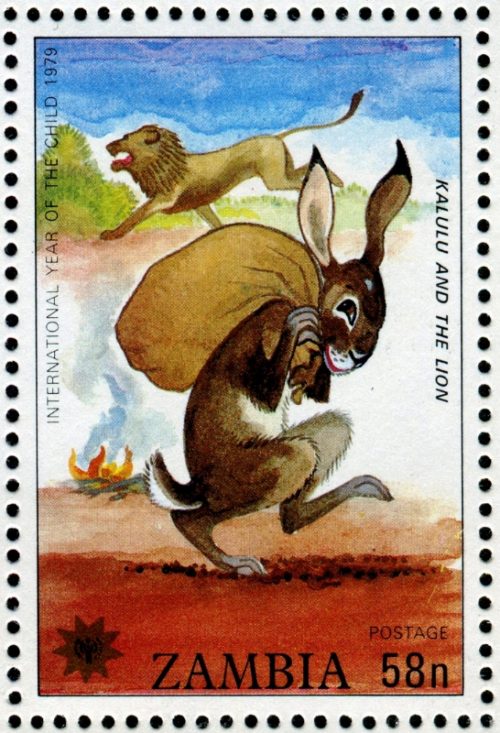
Of course the best part of any project is the chance to meet colleagues from different places and learn about the interesting and exciting things that are happening in the region. The Kafue River is a really important ecosystem for the Zambian people and their economy and provides a substantial amount of water to the Zambezi River. The people we met at the training were wonderful and the experience in Lusaka was top notch. A special treat was working with Chanda K, whom Simon and I had been teaching in the report card course for the last several months. We had met her virtually, but it was great to finally meet her in person, and deliver her certificate from completing the course!
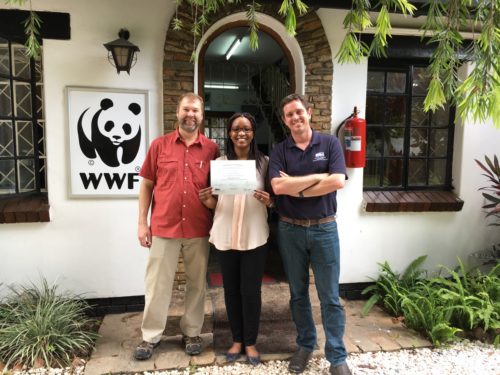
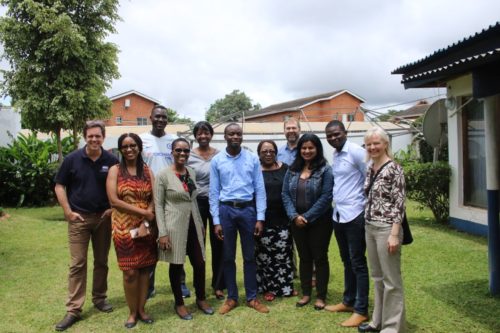
About the author
Heath Kelsey
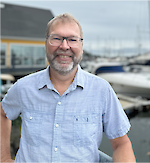
Heath Kelsey has been with IAN since 2009, as a Science Integrator, Program Manager, and as Director since 2019. His work focuses on helping communities become more engaged in socio-environmental decision making. He has over 15-years of experience in stakeholder engagement, environmental and public health assessment, indicator development, and science communication. He has led numerous ecosystem health and socio-environmental health report card projects globally, in Australia, India, the South Pacific, Africa, and throughout the US. Dr. Kelsey received his MSPH (2000) and PhD (2006) from The University of South Carolina Arnold School of Public Health. He is a graduate of St Mary’s College of Maryland (1988), and was a Peace Corps Volunteer in Papua New Guinea from 1995-1998.